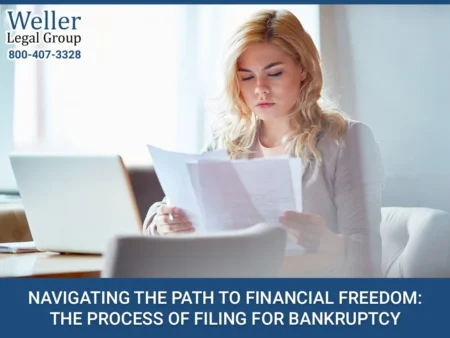
Filing for bankruptcy can be a complex and emotional journey. It’s a path tread by many who seek relief from overwhelming debt, aiming to reset their financial compass. In Clearwater, understanding this process and how a bankruptcy attorney can assist is crucial to navigating these choppy waters successfully. This guide outlines the essential steps involved in filing for bankruptcy and highlights the indispensable role of a knowledgeable bankruptcy attorney at each stage.
Step 1: Understanding Your Options
The first step in the bankruptcy process is to comprehensively understand your financial situation. This is where a bankruptcy attorney becomes invaluable. They can help assess your debts, assets, and income to determine the most suitable type of bankruptcy for you — Chapter 7 or Chapter 13. A seasoned attorney will explain the differences, including the liquidation process in Chapter 7 and the debt reorganization plan in Chapter 13, ensuring you make an informed decision.
Step 2: Mandatory Credit Counseling
Before filing for bankruptcy, you must complete a credit counseling course from a government-approved agency. This course aims to ensure that you understand all the debt relief options available to you. An attorney can recommend reputable credit counseling agencies in Clearwater and help you interpret the implications of this step in your bankruptcy process.
Step 3: Preparing and Filing the Bankruptcy Petition
Preparing the bankruptcy petition is a meticulous process that requires detailed information about your finances. This includes your debts, income, assets, expenses, and recent financial transactions. A bankruptcy attorney’s expertise is crucial here, as they ensure the accuracy and completeness of the documents, thus minimizing the risk of complications or delays. They will guide you through gathering necessary documents like tax returns, pay stubs, mortgage statements, and loan documents.
Step 4: Dealing with the Automatic Stay
Upon filing your bankruptcy petition, an automatic stay goes into effect. This court order stops most creditors from pursuing collection activities against you. Your attorney will explain how this impacts foreclosure proceedings, wage garnishments, and other creditor actions, providing a much-needed respite as you work through the bankruptcy process.
Step 5: The 341 Meeting of Creditors
Approximately a month after filing, you will attend the 341 Meeting of Creditors. Here, the bankruptcy trustee and any of your creditors can ask you questions about your financial situation and the documents you filed. Having a bankruptcy attorney by your side during this meeting is crucial. They can prepare you for the types of questions you might be asked and advocate on your behalf, ensuring your rights are protected.
Step 6: Dealing with Bankruptcy Exemptions
In a Chapter 7 filing, you might have to surrender some assets to pay off creditors. However, specific bankruptcy exemptions protect certain types of assets. A skilled bankruptcy attorney in Clearwater will help you understand Florida’s bankruptcy exemption laws and how they apply to your case, potentially allowing you to keep your home, car, personal belongings, or retirement savings.
Step 7: Completing a Debtor Education Course
After filing for bankruptcy, but before your debts are discharged, you must complete a debtor education course. This course is designed to help you manage your finances better in the future. Your attorney can guide you to approved course providers and explain how completing this course plays a vital role in the bankruptcy process.
Step 8: Receiving Your Discharge
The final step in the bankruptcy process is receiving your discharge from the court, which typically happens a few months after filing for Chapter 7 and after completing a Chapter 13 repayment plan. This discharge is the legal order that releases you from liability for specific debts. Your attorney will help you understand the implications of the discharge and what debts it covers.
Filing for bankruptcy in Clearwater doesn’t have to be an insurmountable challenge. With the right guidance from a seasoned bankruptcy attorney, such as those at Weller Legal Group, you can navigate the process with confidence and clarity. Your attorney not only provides legal expertise but also offers emotional support, helping you to see the light at the end of the tunnel. Remember, declaring bankruptcy is not an end but a new beginning — a step towards regaining your financial freedom and starting anew.
Picture Credit: Freepik

